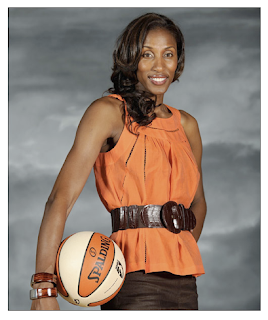The 1999 FIFA Women’s World
Cup held in the United States marked the beginning of a new era for women’s
soccer. The tournament was
expanded to 16 teams, games were held in massive NFL stadiums, and media coverage
was significantly increased. As
illustrated through the video in class, many critics believed that the U.S
Women’s Soccer team would end up embarrassing themselves by playing in front of
empty stadiums as crowds would not be interested in a women’s sport. These critics ended up being dead
wrong. The American women would
end up taking home gold by defeating China in penalty kicks in front of a
sellout crowd of 90,125 at the Rose Bowl, marking a newfound victory for not
just women’s soccer, but women’s sports overall in the United States (FIFA,
1999, paragraph 3). In an age where is it extremely difficult to meet, yet
alone form a relationship with a professional athlete, the 1999 USA Women’s
National Soccer team stands out as a team that really did right by their fans
in my opinion, leading to the ultimate success of the FIFA World Cup.
One of the major differences
that made this team stand out from others was their willingness to engage in
grassroots marketing with their fans.
I doubt that any NFL, MLB, or NBA teams would be willing to hold open
session camps (for free) and give each youth athlete the attention and time
that these U.S. women’s players did.
For anyone who has ever attempted to obtain something as simple as an
autograph or handshake at an NFL training camp or before an MLB game, I think
you can agree when I say that there is a disconnect (for the most part) between
today’s athletes and their fans. I
was very impressed with the way this team presented itself to the public. Becoming so personal with the youth
athletes that came out to see them at the camps not only helped with ticket
sales, but also helped in encouraging participation in youth soccer for
girls. The current success of the
U.S National Women’s Soccer program along with the popularity of girl’s soccer
in middle and high school can be greatly attributed to this team. Based upon this video and coverage from
the Olympics, I would say (that in general) female athletes are much more
likely to be appreciative and warm up to their fans than males. While I cannot prove that this is
completely based upon gender differences (or possibly differences in salary), I
was very impressed with the way in which the U.S. women genuinely appreciated
the individuals who came out to support them. While fans often defer to male sports for role models and
idols, I personally wish more of our male athletes approached interviews and
their supporters in the way females do.
In having to “earn” their fans with more difficulty, female athletes
have a better understanding the time and effort that goes in to supporting a
team and a player. Not only are
many of these women great athletes, but we are also able to find out who they
are as people. You can only learn
so much about a person from what you see on television, read on twitter, or get
out of a 30-second interview. Many
current male athletes should take a lesson from the 1999 USA Women’s National
soccer team and really get out to meet their fans. These individuals spend their time and money to come out and
watch you play a game, the least you can do is sign an autograph or give a kid
a high-five. It may be
insignificant to the athlete, but it is something that the fan or child will
remember for the rest of their life.
When in doubt, defer to the actions of the 1999 women because they did
it right in my opinion.


